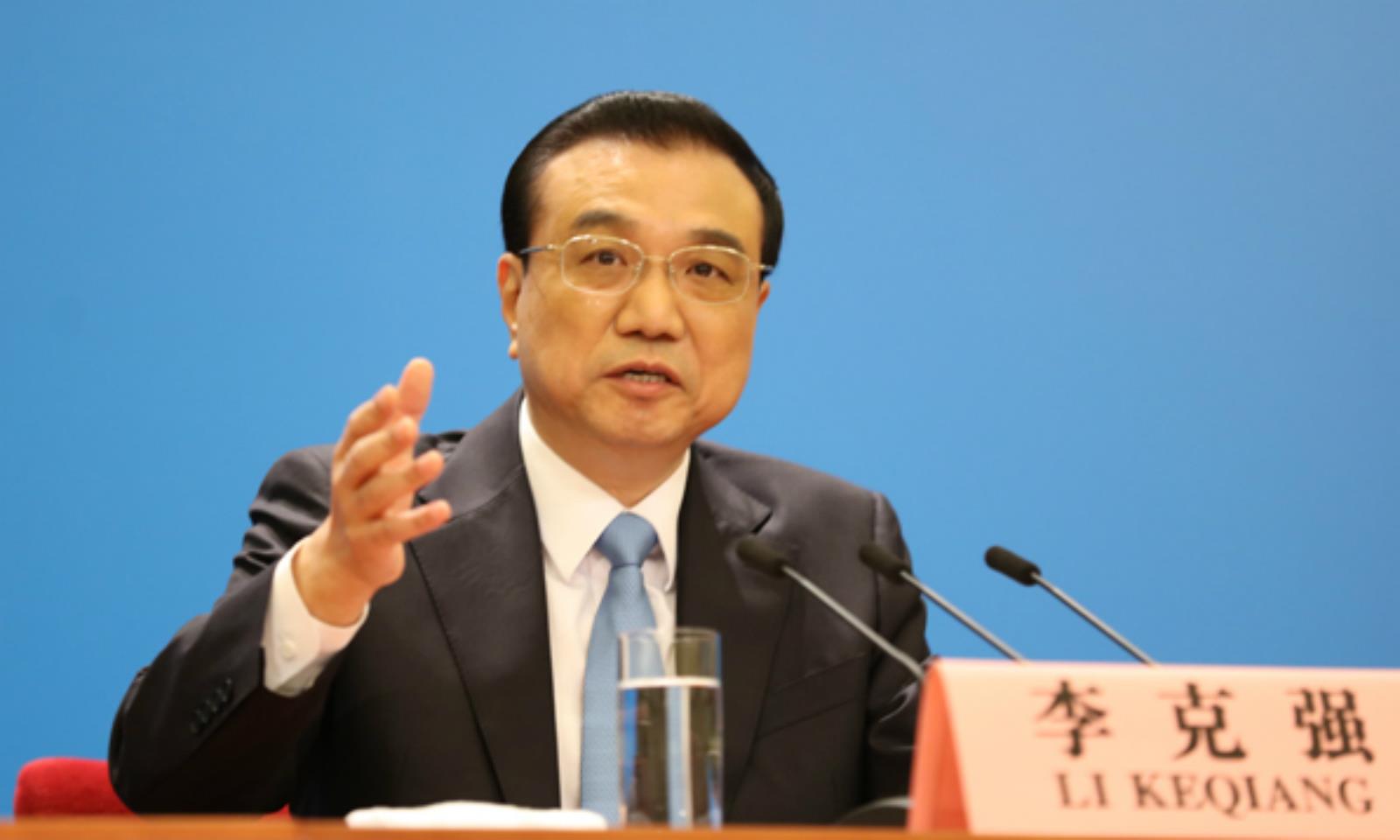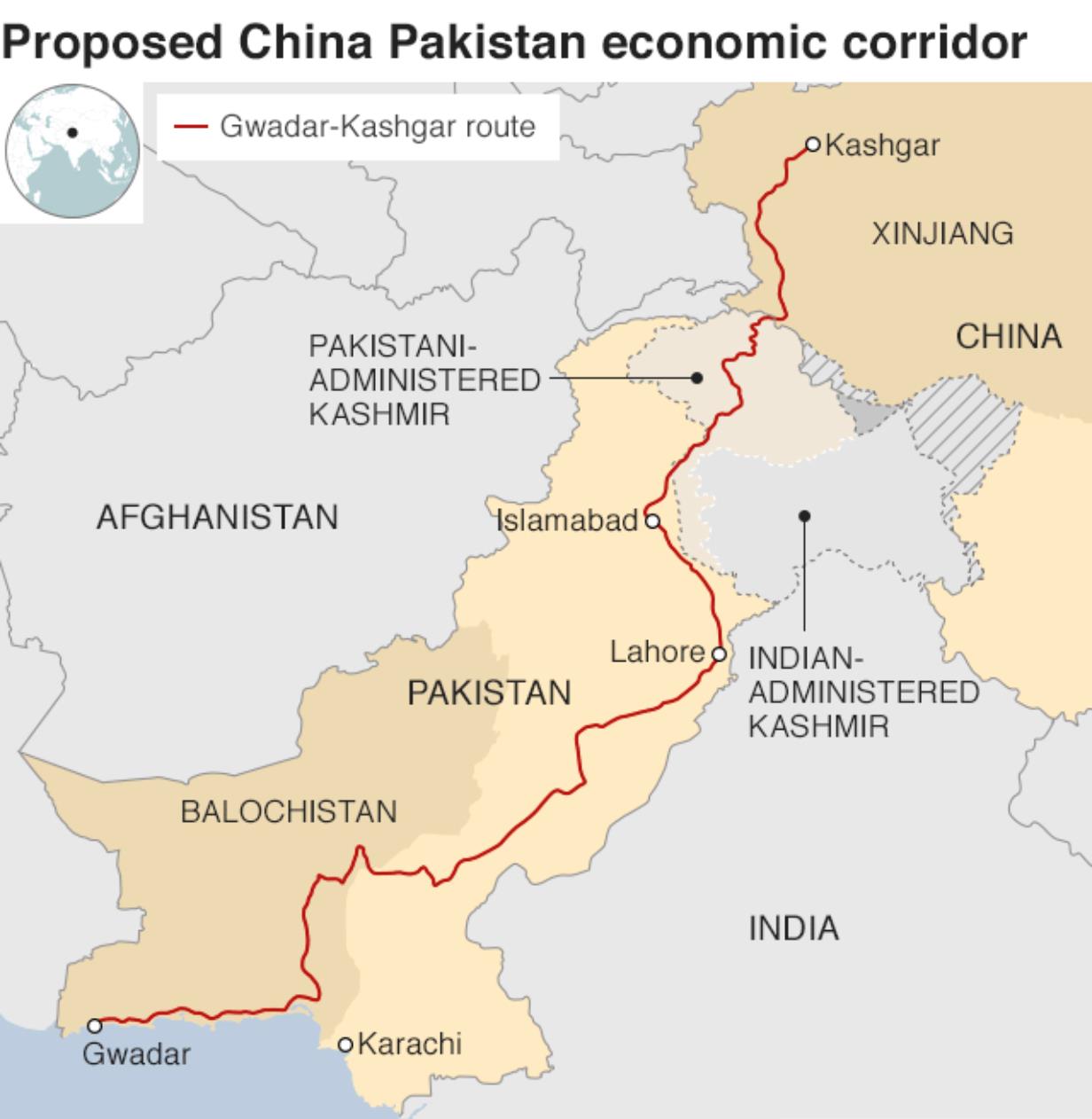(MENAFN- Asia Times)
PESHAWAR – An attempt to blow up a convoy of Chinese workers in southwest Balochistan province was stopped when Pakistan Police arrested a suspected female suicide bomber on Monday.
Police arrested the woman suspected of being a suicide bomber at the border area near Afghanistan and Iran. Law enforcement officers claimed she was planning to blow herself up and in the process kill several Chinese nationals working on the flagship project of Beijing's Belt and Road Initiative.
On May 18, the Balochistan government confirmed that a suspected female suicide bomber associated with the outlawed Balochistan Liberation Army's (BLA) Majeed Brigade was taken into custody at Turbat, a city in southern Balochistan.
Police said the suspected bomber and her accomplice were carrying a suicide vest, a Kalashnikov rifle, nine kilograms of explosive material and six grenades. The woman, identified as Noor Jahan, later confessed to the security agency that she and her accomplice planned to target Chinese nationals.
Last month, three Chinese tutors and their driver were killed in a suicide operation carried out by a female operative of the Balochistan Liberation Army (BLA) in the Karachi University's Confucius Center.
In July 2021, a bus carrying Chinese workers in Khyber-Pakhtunkhwa came under attack, leaving 10 Chinese nationals dead and 28 others injured.
“Baloch separatists perceive the Chinese as their enemies, considering them as 'partners in crime' with the Pakistan security forces in 'plundering the Balochistan resources,' which they want to halt,” Mansur Khan Mahsud, the executive director of the Islamabad-based FATA Research Centre (FRC), an independent think tank, told Asia Times.

Pakistani naval personnel stand guard near a ship carrying containers at the Gwadar port, 700kms west of Karachi, where a trade program between Pakistan and China operates. Photo: AFP/Aamir Qureshi
Chinese told to leave
“This is precisely the reason that they had warned the Chinese companies several times to leave Balochistan.”
He said the Baloch insurgency would escalate because of the shift in the BLA's 'operational dynamics' seen over the years.
“As you see that now women have also joined the Baloch insurgency and are carrying out even suicide attacks against the Chinese targets, not only in Balochistan but elsewhere in Pakistan also,” he added.
Mahsud said that although Pakistan was trying to control the security situation in Balochistan, so far no real progress was made in that direction.
“The use of women for suicide attacks has got a lot of media attention, which served the purpose of the Baloch insurgents because they need to tell the outside world how desperate they are to 'liberate' their homeland,” he said.
Analysts claim Beijing was not happy with the security situation unfolding in Pakistan and want Pakistan's authorities to take appropriate steps to thwart the looming threats to the lives and safety of their citizens working there.
Some media reports claimed several Chinese nationals had been called back by Beijing after threats by Baloch insurgents.
“The security anywhere should ideally be comprehensive and proactive to the point where possible soft targets (in this case Chinese workers in Pakistan) don't need to live under those stressful conditions,” Andrew Korybko, a Moscow-based American political analyst, author, radio host and regular contributor to several online outlets, told Asia Times.
“Pakistan's security environment is unique and very challenging, but Islamabad is doing its best to make all of its foreign guests feel as comfortable as it can considering the difficult situation in the country.”
When asked whether he believed the Baloch insurgency would escalate in the coming days, Korybko said it was difficult to make specific predictions, but the most recent attack and the latest one that was thwarted suggested the BLA had decided to capitalize on Pakistan's political crisis to renew its terrorist campaign.

Chinese Premier Li Keqiang has been in touch with Pakistan's new prime minister. Photo: Xinhua
China pushes Pakistan on insurgents
“From their perspective, the present situation is very opportune since they might think that the security agencies are divided between managing the new challenges connected with Imran Khan's de facto revolution and carrying out their traditional anti-terrorist responsibilities,” he added.
The Chinese leadership is in constant touch with Pakistani authorities, seeking an immediate halt to militant activities in regions where Chinese companies are involved in strategic projects under the multibillion-dollar China-Pakistan Economic Corridor (CPEC).
Chinese nationals, they say, face a full-blown insurgency, which does not augur well for development activities in Pakistan.
On May 17, Prime Minister Shehbaz Sharif had a telephonic call from Chinese Premier Li Keqiang and one of the topics discussed was the security situation and the safety of Chinese nationals in Pakistan.
After the call, Prime Minister Sharif ordered the interior ministry and security agencies to tighten security operations for Chinese nationals working on the CPEC and other projects in the country.
Sharif reportedly assured Premier Li that Islamabad would take all measures to provide safety and security to Chinese nationals and assured him there would be no compromise on the security of Chinese residents.
Sources said Sharif called for a security plan and directed the interior ministry to share the plan with the Chinese companies involved in various projects to get their feedback. The PM also sent Ahsan Iqbal, the Minister for Planning and Development and Special Initiatives, to Gwadar to talk to the country heads of all the Chinese companies working there and to ask what difficulties they faced while doing business in Pakistan.
“These terrorist attacks exploit soft targets that are impossible to perfectly defend,” said Korybko.“Their purpose is to raise a concern about CPEC's security, including that of those Chinese who work on its many projects.
“This is intended to influence China into curtailing its investments in Pakistan. Since Beijing has already invested billions of dollars into CPEC and committed to continuing with this megaproject, it is unlikely that it will ever abandon it.
“China has confidence that Pakistan can ensure its security as best as possible,” he added.
He said counter-terrorism was a national security priority that was not influenced by the country's present political problems.
“Pakistan's military-intelligence agencies will always do their utmost to root out this evil, but the challenge is that it is impossible to ever perfectly ensure security, especially when groups like the BLA attack soft targets,” he said.
“Another factor is that most foreigners would prefer to live freely wherever they work, not be whisked between work, home and back in armed convoys for their own safety.”

Pakistani authorities are more concerned with the second phase of the CPEC, which revolves around the private sector running the industrial zones and businesses.
The second phase also entails greater participation by Chinese companies, which means more Chinese nationals will be in the country and be involved in technology, industrialization and agriculture.
Unlike the first phase of the CPEC, which was mostly dominated by government-to-government or government-to-business cooperation in the fields of roads, highways and energy infrastructure, the second phase of the project needs a larger involvement of the private sector, which will bring greater risks of insurgency.
MENAFN20052022000159011032ID1104247115